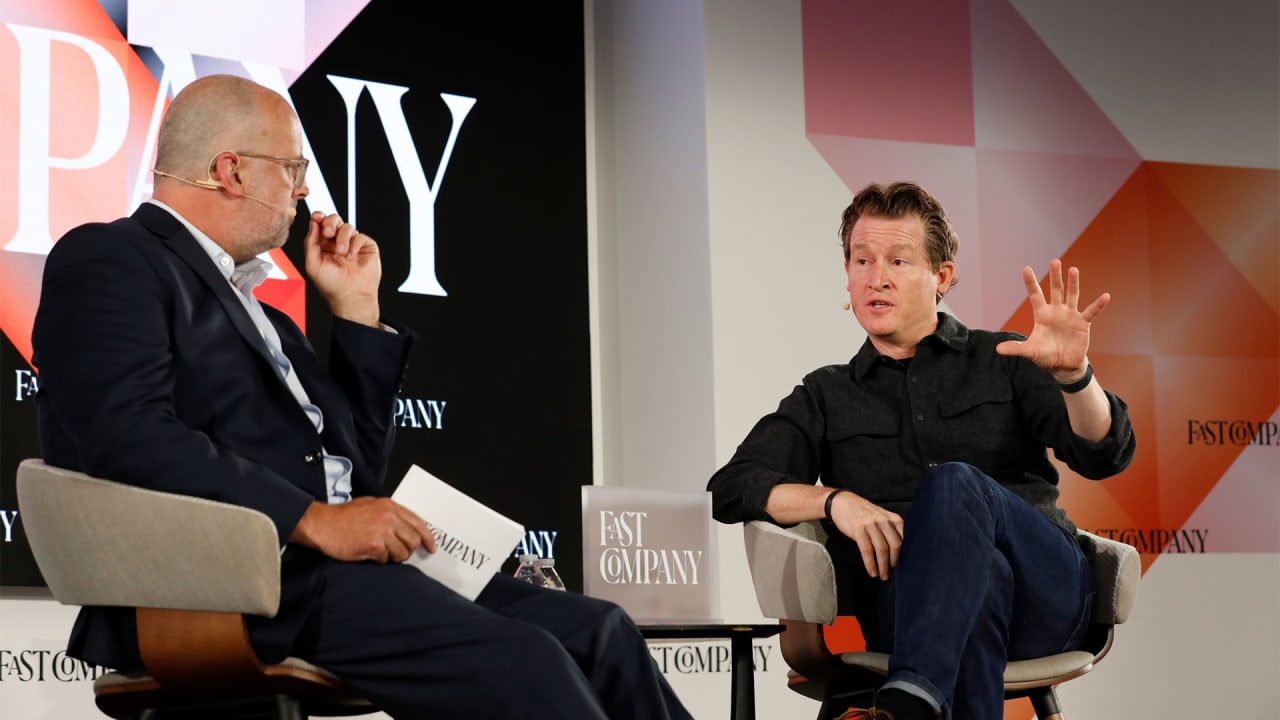[ad_1]

As the CEO of a notably progressive brand, Patagonia’s Ryan Gellert is used to threading the tricky needle of capitalism and good causes. This is the company, after all, whose founder stunned the business world last year by transferring all ownership to an environmentally focused trust.
But not every company can so seamlessly navigate the tradeoffs necessary to operate in accordance with its values—or even know what its values are. Scan the news over the past year, and it’s not hard to find examples of brands clumsily wading into the culture wars with flavorless ad campaigns, mealy mouthed press statements, and, more typically, deafening silence. This, despite the fact that aspiring national politicians including Governor Ron DeSantis of Florida have made “anti-woke” identity politics the cornerstone of their presidential campaigns.
Gellert, who took the reins as Patagonia’s CEO in 2020, thinks he has a good idea why companies choose not to engage.
“I think it’s probably two things—and one is fear,” he told an audience in New York this week at the Fast Company Innovation Festival. “There is no term that people in senior roles . . . like to hear themselves described as more than the term ‘leader.’ It’s like a drug for a lot of people. And I think that when you get a governor in Florida campaigning on anti-woke and you say, ‘Oh, we can’t touch this,’ that doesn’t feel a lot like leadership to me.”
The second reason that companies get in trouble over politics, Gellert continued, is lack of consistency. Patagonia, which turned 50 this year, has been known throughout the decades as being a values-centric operation. For instance, it’s been pledging 1% of its sales to environmental causes since 1985.
By contrast, consider how quickly some companies put the brakes on Pride campaigns this year at the first sign of an anti-LGBTQ backlash fueled by social media. The end result is that they often end up pleasing no one.
“I think you have companies trying to jump into something often after they’ve been very unclear as to where they stand on it,” Gellert said. “And then, as soon as they take any kind of incoming, they try to walk it back. And I think that gets sniffed out really quickly every time.”
While Yvon Chouinard, Patagonia’s founder, may forever be associated with the high-impact activism that has been made possible by the enduring popularity of his outdoor lifestyle brand, Gellert is quick to point out that old-fashioned capitalism is still at the core of what Patagonia does.
“We’re unapologetically a for-profit business,” he said. “And I say unapologetically not just because of what it enables us to do. More importantly it gives us a seat at the table. We’re not government. We’re not an NGO. We’re a business. I think that gives us the opportunity to provide both inspiration and the opposite to other businesses.”
[ad_2]
Source link

Comments are closed.